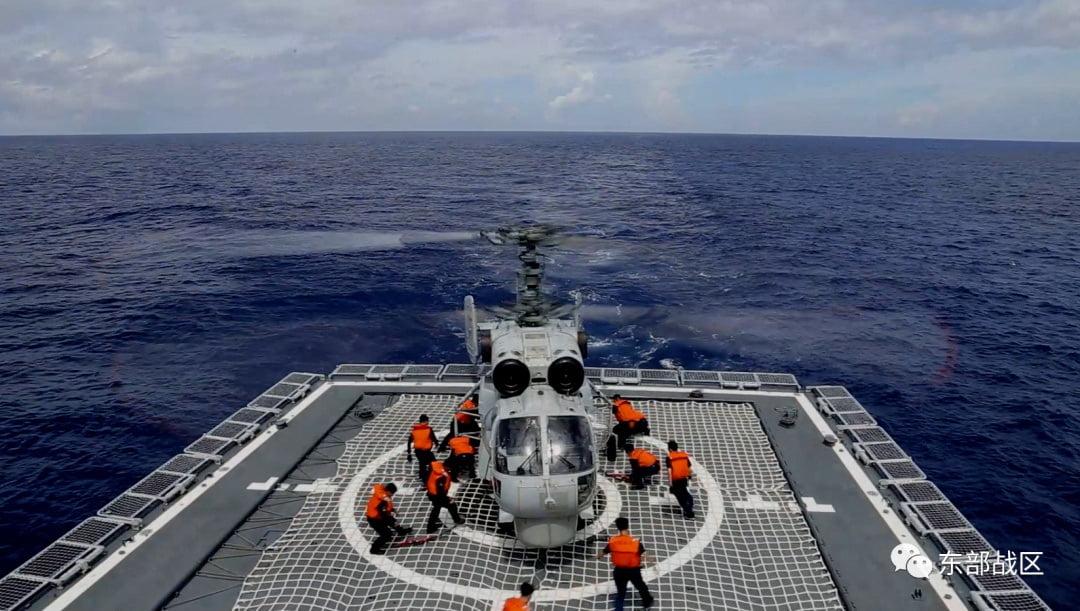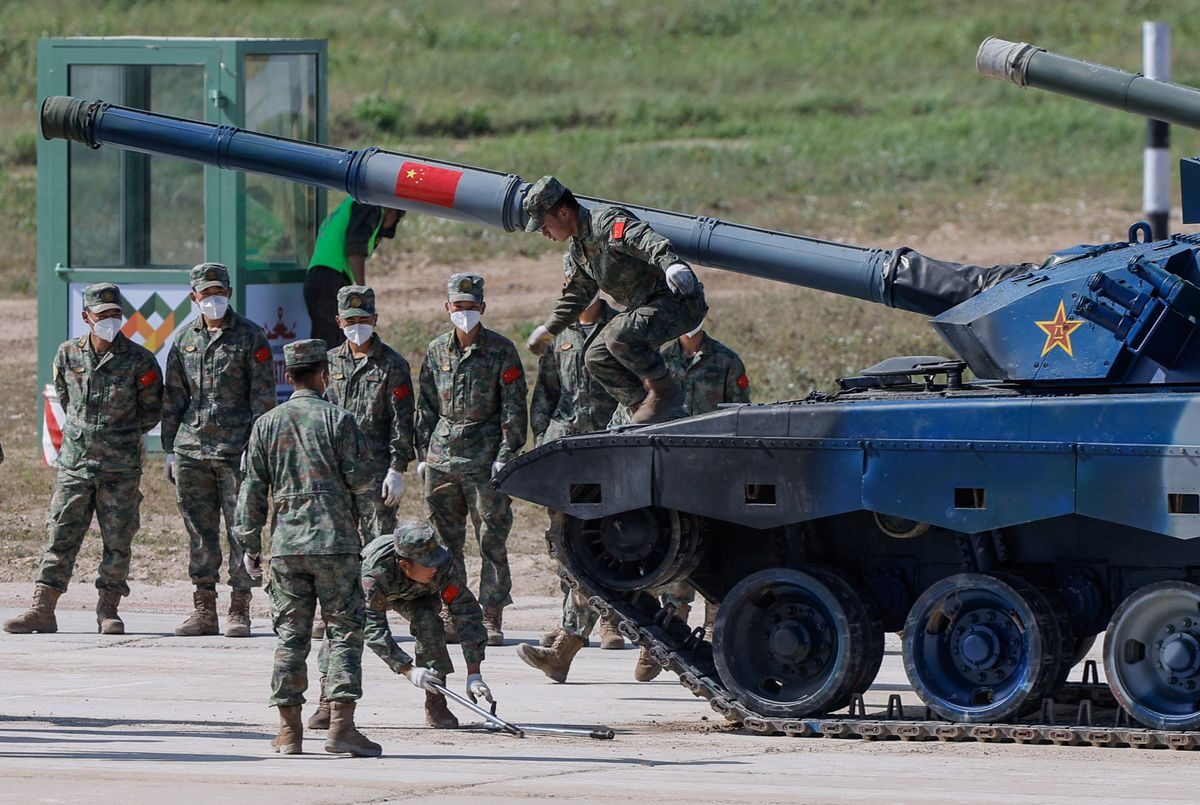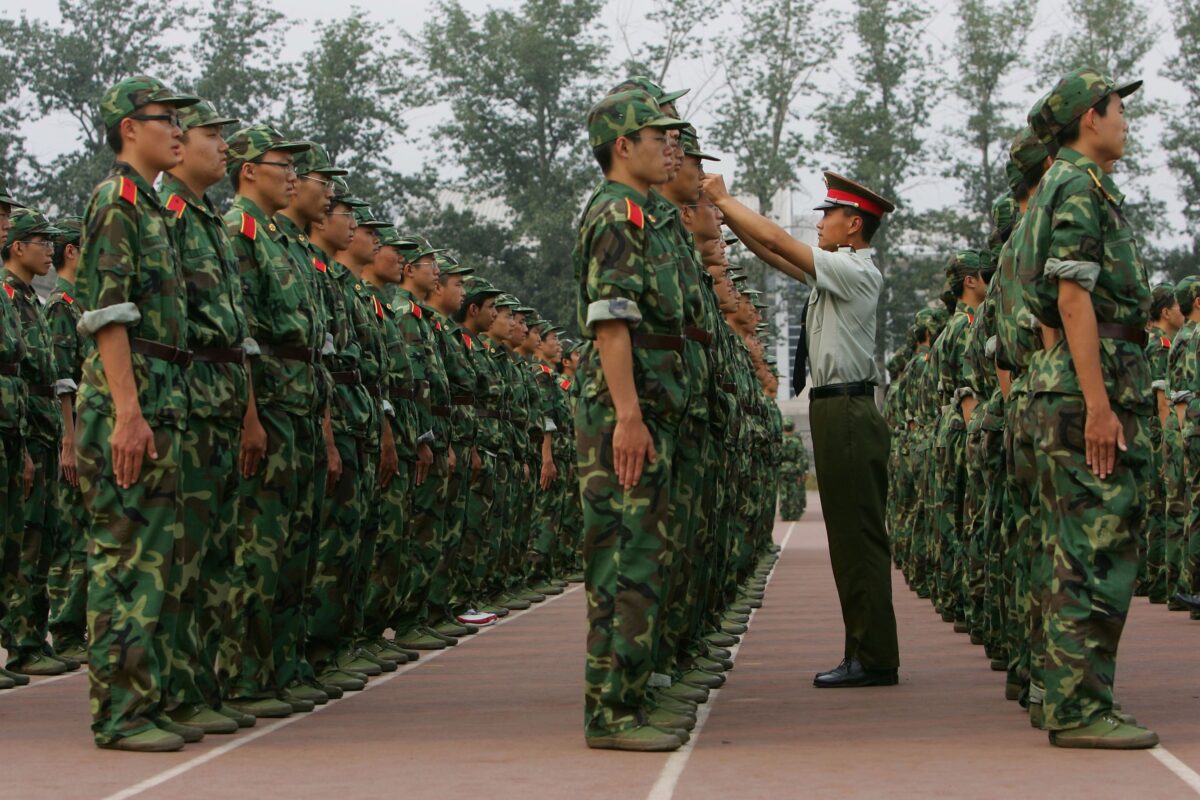


China’s newly revised military conscription laws went into effect on May 1. Its focus on reenlisting retired service people and recruiting college students with expertise in space and cyberwarfare has drawn widespread attention.
The amended conscription regulations were approved by the ruling Chinese Communist Party’s (CCP) State Council and the Central Military Commission in April. They cover all aspects of China’s military recruitment and personnel deployment processes, making it easier, faster, and more specialized for domestic emergencies and wartime.
Currently, China has 2 million military personnel, 35 percent of which are conscripted, serving for two years.
The revisions allow retired service people to be reenlisted if they are voluntary and meet the conditions, and they will serve in their previous service units or similar posts.
“The retired service people under the age of 45 must join the military reserve force in China. In fact, the reserve force is also an integral part of the armed forces, and there is no difference between voluntary and involuntary. When you go into the reserves, you’re a soldier,” Yao Cheng, former Lt. Col. of the CCP Navy Command, told the “New Vision” program on NTD, the sister media outlet of The Epoch Times.
Regarding why veterans are one of the main target groups for the new conscription regulations, Yao said that modern warfare is carried out under high-tech conditions, and it takes a lot of money to train a professional technical soldier.
“The retired service people basically all have professional skills, such as pilots. Even if they have been retired for years, if the military needs them, they can directly fly fighter jets,” he said.
Chen Shimin, an associate professor at the Department of Political Science at National Taiwan University, told the Central News Agency that manpower is an important resource for war, but due to the impact of negative population growth in China, the CCP needs to bring back retired service people to supplement the armed forces by amending relevant regulations.
Another focus of the revised conscription law is to conscript college students. The new regulations authorize universities to handle the drafting of students. Colleges and universities can select students to be conscripted either in the place where their household registration is located or where the school is located.
Since last year, the CCP has begun to focus on recruiting college students to join the military. Propaganda to encourage college and graduate students to enlist has continued to appear in the media, targeting those who majored in science and engineering and those with technology and combat skills.
Japanese media Nikkei Asia pointed out that the CCP’s newly revised conscription regulations focus on recruiting students who are proficient in artificial intelligence, high technology, and engineering so they can operate weapons on fighter planes and warships, preparing them for new types of warfare such as cyber, space, and intelligence. The CCP aims to seize Taiwan by force, the report said.
However, Masashi Iida, a China expert at Japan’s National Defense Research Institute, told Nikkei that the Chinese military’s focus on recruiting retired service people and college students shows a shortage of active-duty service members. “The military may have difficulty finding enough personnel to respond to a military buildup and intelligence warfare,” he said.
Regarding why the conscription measures were revised, Yao said, “The purpose must be to fight; if there is no war, what is the point of emphasizing these things again and again?
“You can see that the geopolitical environment around the CCP is very harsh, and the main battlefield should be at sea. The main focus is the South China Sea. The main target in the South China Sea is the Philippines.”
The Chinese military has been harassing Filipino fishermen on the disputed islands and reefs in the South China Sea that the Philippines also claims sovereignty over. On April 23, a Chinese Coast Guard vessel almost collided with a Philippine Coast Guard ship in the disputed waters.
Yao believes the CCP does not have the ability to attack Taiwan at the moment, “however, it doesn’t mean that it will not be capable of attacking in the future.
“It will definitely invade Taiwan, but not right now. [Taiwan] is not what needs to be fought at present, as the political environment around China is very bad,” he said.
The CCP has taken a series of actions to prepare for war.
Beijing implemented the Reserve Personnel Law on March 1, which raised the upper age limit for various ranks in China’s reserve forces, from soldiers to officers, up to 60 years old.
The Chinese regime also passed a resolution on Feb. 24 to adjust the application of some provisions of the Criminal Procedure Law for the military during wartime, which took effect on Feb. 25. The new adjustments took aim at “crimes of a military nature” that might pose a threat to the CCP, such as “defection and desertion” in the military during wartime.
The resolution also outlined a legal basis for the CCP to declare martial law if needed for domestic control.
An anti-war post denouncing the regime’s war efforts recently went viral on Chinese social media, resonating with countless Chinese citizens.
A netizen responded: “The children and wives of high-ranking officials have all moved to the United States. Why should we, the common people, have to risk our lives [to go to war for them]?”
Others said, “Let the officials go first.”
Another post read: “Give me a weapon and see who I will fire at. I will definitely target those who force me to go to the battlefield. I have no grudges against anyone else.”
Yao pointed out: “The CCP has brought the country to the brink of war. [CCP leader] Xi Jinping wants to wage war to protect his life and position. The CCP wages wars to protect its rule, not to protect the people.
“I hope the common people will wake up and not go down with the CCP. Make peace, not war. Those who die in wars are us, the ordinary people.”



